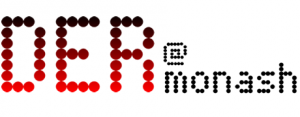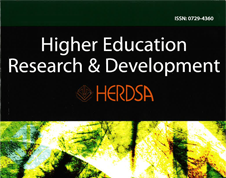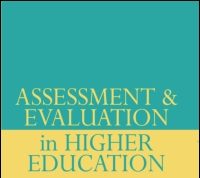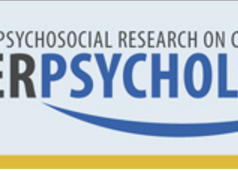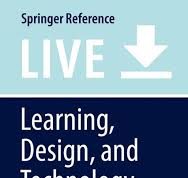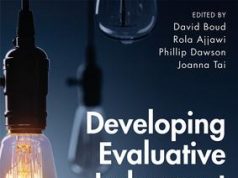 Author:
Author:
Tracii Ryan
While Facebook was originally developed for the purposes of facilitating social interaction with extended social networks, increasing numbers of teachers and educators are recognising its potential as a user-friendly, student-centred, collaborative online learning environment. It’s easy to see why this is the case; Facebook is a powerful tool for sharing information. However, there also exists a paradox in Facebook use; some of the more frequently promoted advantages can actually lead to problematic outcomes.
Studying hard, or hardly studying?
Facebook is a hugely popular social networking site, particularly among younger people. Unlike platforms that were specifically designed for learning purposes (such as Moodle or Blackboard), students generally feel confident using Facebook, and are motivated to check it regularly. However, while teachers and educators have some control over the content that is posted in private class groups, they have no power to restrict the volume or type of content that is posted on each users’ individual news feed. Therefore, when using Facebook for learning purposes, students are being encouraged to use the perfect procrastination tool. In fact, research has demonstrated that Facebook use can be detrimental to students’ commitment to study, and can lead to diminished academic performance (Kirschner & Karpinski, 2010). My own work in this area indicates that Facebook use can interfere with students’ ability to complete assessment tasks (Ryan, Chester, Reece & Xenos, 2016), and is particularly appealing to people with low levels of conscientiousness (Ryan & Xenos, 2011).
There is no doubt that Facebook allows for collaborative engagement among students: users can communicate rapidly and easily without regard to time and space. However, when taken in conjunction with their own personal newsfeeds, students can be exposed to a never-ending stream of continuously updated content. Besides being a source of distraction from learning, my qualitative research suggests that some users even become fearful of negative ramifications if they fail to monitor posts and comments regularly (Ryan, 2015). They then tend to refresh their news feeds continuously to keep on top of new content.
Outcome expectancy theory states that individuals perform certain behaviours in anticipation of a desirable effect (Jones, Corbin & Fromme, 2001). As my colleagues and I have suggested, constant Facebook checking acts to reduce boredom or fear of missing out, which eventually leads to cognitive preoccupation with Facebook (Ryan et al., 2016). When this occurs, it is likely that users will be too engrossed with checking Facebook to focus on study. We have argued that, in extreme cases, Facebook checking behaviour may even become habitual or compulsive (Ryan, Chester, Reece, & Xenos, 2014). Theoretically, this could occur through reinforcement of outcome expectancies on a variable-ratio schedule; that is, when a reinforcing stimulus (i.e., a Facebook notification or update) is provided after a random number of responses or behaviours (i.e. checking Facebook). As this is the same type of reinforcement that is seen in Gambling Disorder, the habitual checking may be difficult to overcome.
 Connected but alone
Connected but alone
Arguably, one of the great advantages of Facebook is that it facilitates social interaction for students who find face-to-face communication challenging. For off-campus or distance students, Facebook allows communication with teachers and fellow students at any time of day (VanDoorn & Eklund, 2013). Furthermore, shy or socially anxious students – who believe that they lack the necessary social skills to confidently participate during in-class discussions – benefit by receiving more control over their self-presentation (Baker & Oswald, 2010). This is because online communication involves a reduction in potentially awkward visual cues, and users can more easily control the pace and content of communication. Facebook therefore allows shy and socially anxious students to converse with people in ways that have previously been difficult for them. But therein lies the paradox. As my colleagues and I have postulated, the facilitated social connection offered by Facebook may also lead to problematic use (Allen, Ryan, Gray, McInerney, & Waters, 2014).
Off-campus students, or those who are painfully shy, may find that interacting with others on Facebook temporarily reduces their pervasive feelings of social disconnection or loneliness (Ryan et al., 2014). Facebook use can then become an irresistible means of escape from these unwanted mood states. Unfortunately, this may lead to excessive and unregulated Facebook use, again due to the experience of outcome expectancies. When this expectancy is reinforced (through the continued receipt of social interaction), students can become preoccupied with using Facebook and lose control over their use (Lee, Cheung & Thadani, 2012). My qualitative research indicates that, in some cases, students may begin to use Facebook instead of completing other important activities, such as study, housework, exercise, or spending time with their loved ones (Ryan et al., 2016). Furthermore, in situations where students are not able to access Facebook, they may experience cognitive withdrawal symptoms, such as anxiety or frustration.
Moving Forward
While it is clear that Facebook offers some benefits for educators, it is important to understand that these may come at a cost for some students. In my previous research, I’ve hypothesised that Facebook use can become problematic (or even addictive) for those who are easily distracted, have low levels of conscientiousness, or are shy or socially isolated. Of course, the concerns about Facebook use in the classroom do not end here; other scholars have argued that asking students and teachers to expose their private accounts for educative purposes may cross an ethical boundary (for more research on this topic see Auld & Henderson, 2014; Henderson, Auld, & Johnson, 2014).
However, it is important to note that the existence of these concerns does not mean that Facebook should never be used as a tool for education. Instead, students and teachers should be provided with information about the potential risks, and given guidelines for sensible and appropriate Facebook use. In this way, teachers and educators will be armed with information that will help them make informed and pragmatic decisions about the appropriateness of Facebook use in their own unique educational context.
About the author
Dr Tracii Ryan is a member of the LNM group and a research fellow in the Faculty of Education, Monash University. Her profile can be found here.
Featured Image / Thumbs down image
https://commons.wikimedia.org/wiki/File:Not_facebook_dislike_thumbs_down.png
References
Allen, K. A., Ryan, T., Gray, D. L., McInerney, D. M., & Waters, L. (2014). Social media use and social connectedness in adolescents: The positives and the potential pitfalls. The Australian Educational and Developmental Psychologist, 31(1), 18.
Auld, G., & Henderson, M. (2014). The ethical dilemmas of social networking sites in classroom contexts. In G. Mallia (Ed.), The Social Classroom: Integrating Social Network Use in Education (pp. 192-207). The Netherlands: Information Science Reference.
Baker, L. R., & Oswald, D. L. (2010). Shyness and online social networking services. Journal of Social and Personal Relationships, 27(7), 873-889.
Henderson, M., Auld, G. & Johnson, N. F. (2014). Ethics of teaching with social media. Paper presented at the Australian Computers in Education Conference 2014, Adelaide, SA.
Jones, B. T., Corbin, W., & Fromme, K. (2001). A review of expectancy theory and alcohol consumption. Addiction, 96(1), 57-72.
Kirschner, P. A., & Karpinski, A. C. (2010). Facebook® and academic performance. Computers in Human Behavior, 26(6), 1237-1245.
Lee, Z. W., Cheung, C. M., & Thadani, D. R. (2012, January). An investigation into the problematic use of Facebook. In System Science (HICSS), 2012 45th Hawaii International Conference on System Science. (pp. 1768-1776). IEEE.
Ryan, T. (2015). Facebook addiction: An exploratory study using mixed methods (Doctoral thesis).
Ryan, T., Chester, A., Reece, J., & Xenos, S. (2014). The uses and abuses of Facebook: A review of Facebook addiction. Journal of Behavioral Addictions, 3(3), 133-148.
Ryan, T., Chester, A., Reece, J., & Xenos, S. (2016). A qualitative exploration of Facebook addiction: Working toward construct validity. Addicta: The Turkish Journal on Addictions, 3, 55-76.
Ryan, T., & Xenos, S. (2011). Who uses Facebook? An investigation into the relationship between the Big Five, shyness, narcissism, loneliness, and Facebook usage. Computers in Human Behavior, 27(5), 1658-1664.
VanDoorn, G., & Eklund, A. A. (2013). Face to Facebook: Social Media and the Learning and Teaching Potential of Symmetrical, Synchronous Communication. Journal of University Teaching and Learning Practice, 10(1), 6.
